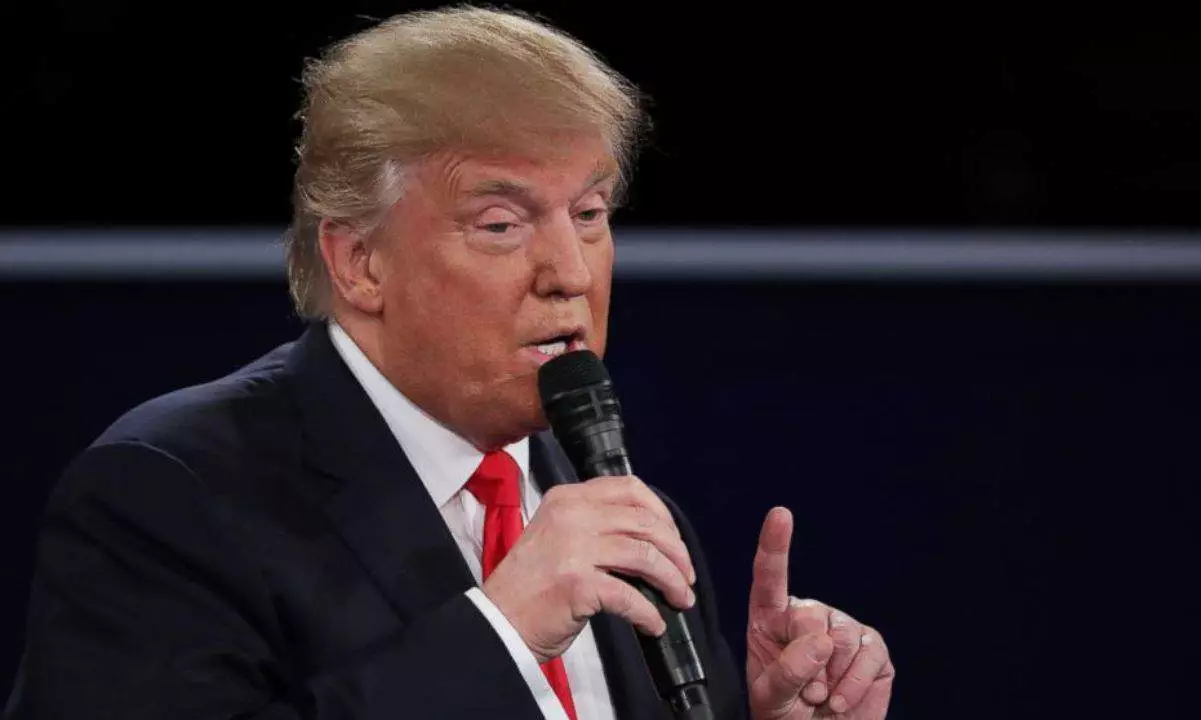In a political landscape that has seen much controversy and polarizing decisions, President Donald Trump’s recent pardons of the founders of BitMEX represent a noteworthy watershed moment for the cryptocurrency world. Unlike any previous administration, Trump opted to pardon the Mahe, Seychelles-based crypto exchange without the customary fanfare, generating speculation and intrigue. By extending clemency not only to the platform but also to its founders and a senior executive, the president has rekindled discussions about regulatory overreach in the burgeoning digital currency market. This unexpected act of leniency is seen by many as both a form of judgment against what they perceive as punitive measures by the U.S. government and a galvanizing moment for the cryptocurrency community.
BitMEX, renowned for its innovative offerings since 2014, was recently embroiled in controversy following a guilty plea in July 2024 for breaches of the Bank Secrecy Act. The company received a staggering $100 million fine, along with two years of probation, which raised alarms over the government’s stance on cryptocurrencies and whether it aims to throttle innovation in favor of traditional finance. The ramifications carry weight—this isn’t merely about one company; it strikes at the heart of an entire industry that is teeming with potential yet fraught with regulatory uncertainty. Could Trump’s move signify a pivot towards a more lenient and supportive stance for the fintech space?
The Ripple Effect: Public and Private Reactions
In the wake of the pardons, reactions have poured in from various quarters, highlighting the public’s polarized expectations. Notably, Arthur Hayes, the co-founder of BitMEX, took to social media to express his gratitude to Trump, embodying a sentiment of vindication among many who believe they were unfairly targeted. The rhetoric from Hayes and his associates speaks volumes about the perceived injustices that small and medium-sized entities in the crypto sector face at the hands of an often draconian regulatory environment.
Benjamin Delo and Samuel Reed, fellow BitMEX co-founders, joined Hayes in lauding the pardons for liberating them from what they termed insufficiently justified convictions. Delo asserted emphatically that the prosecution was grounded in political motivations rather than solid legal grounding. This narrative—that the regulatory actions against BitMEX were politically charged—has resonated deeply and may ignite more discussions around the need for reform in regulatory frameworks governing cryptocurrency.
Both the micro and macro implications are immense. Cryptocurrency enthusiasts are abuzz with speculation about who might be next on the presidential pardon list, with names like Sam Bankman-Fried, the founder of FTX, and Changpeng Zhao, the head of Binance, surfacing regularly. These potential pardons would not only set precedents but could shatter existing walls between traditional and decentralized finance, solidifying Trump’s legacy as a crypto ally should he choose to pursue that trajectory during his term.
History in the Making: The Silk Road and Beyond
The discourse surrounding Trump’s pardons inevitably leads us to the infamous Silk Road creator, Ross Ulbricht, who became a martyr among freedom-loving crypto advocates. His pardon, while widely celebrated within the community, further complicates the ethical landscape surrounding cryptocurrency. It draws attention to the inherent conflicts between governmental mandates and individual liberties.
While platforms like Silk Road operated in the shadows of legality, their very existence raised questions about personal freedom, responsibility, and the right to engage with decentralized technologies freely. Trump’s willingness to pardon figures like Ulbricht may reflect a deeper ideological conflict in conservative circles: the tension between establishing order through regulation and allowing innovation to thrive unfettered.
Critics may argue that pardoning individuals involved in economically detrimental activities sends a troubling message, one that diminishes accountability. However, from a center-right libertarian lens, one could argue for a recalibration of priorities — seeking less government interference in the dynamic sector of cryptocurrencies, thereby diversifying and stimulating the economy.
A New Dawn for Cryptocurrency? The Road Ahead
As we look to the future, the implications of these pardons extend beyond the confines of BitMEX and its founders. They signify a larger narrative where the cryptocurrency ecosystem is viewed as a legitimate and necessary subject for regulatory consideration. The road ahead remains fraught with challenges and uncertainties, especially as potential clemency for other prominent crypto figures continues to tease the boundaries of legality and ethics.
Amidst this chaos, the relationship between cryptocurrency and governance has never been more pertinent. There is an urgent need for constructive engagement between politicians and tech entrepreneurs to foster an environment that encourages both innovation and economic growth. Will Trump’s action inspire a more harmonious relationship between government regulators and blockchain pioneers? Only time will tell if this is the dawn of new, welcoming policies for the cryptocurrency industry or a mere glitch in a prolonged struggle for legitimacy and acceptance.
With volatility around Obama’s legacy of stringent financial oversight and the Trump administration’s fluctuating approach to structural reforms, it seems we are witnessing not merely a political rally but the emergence of a movement that could reshape the future of finance as we know it.















